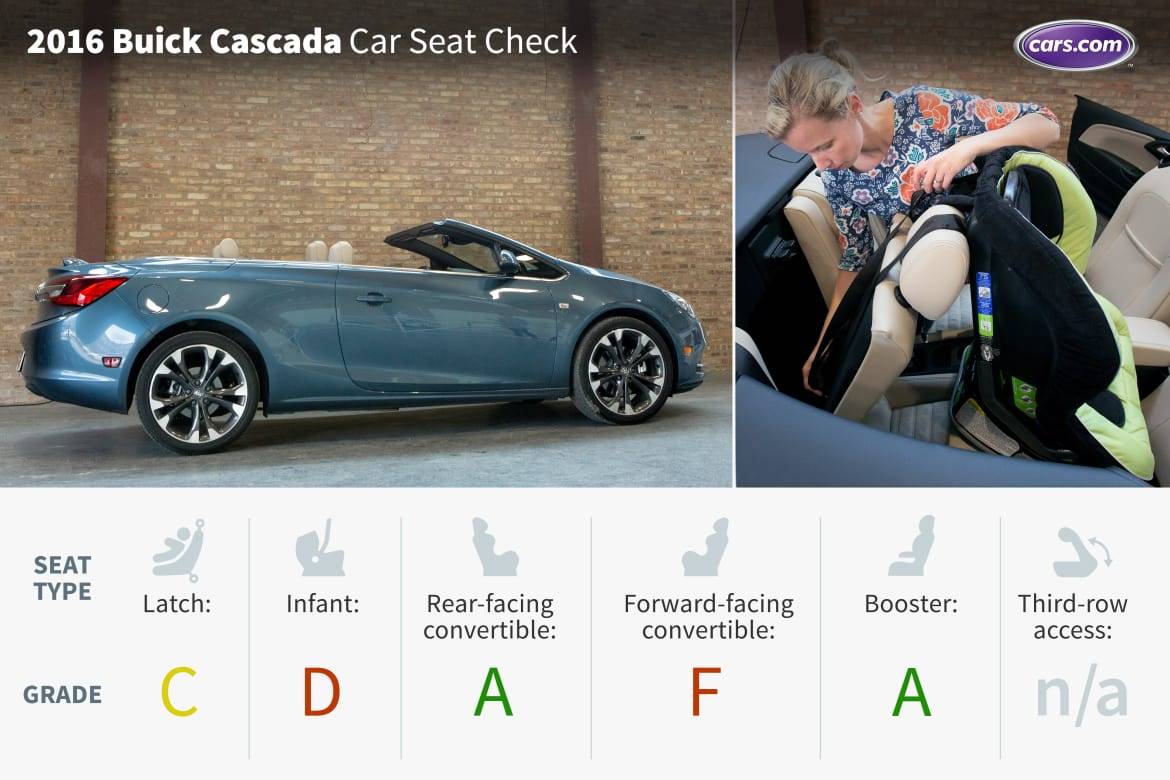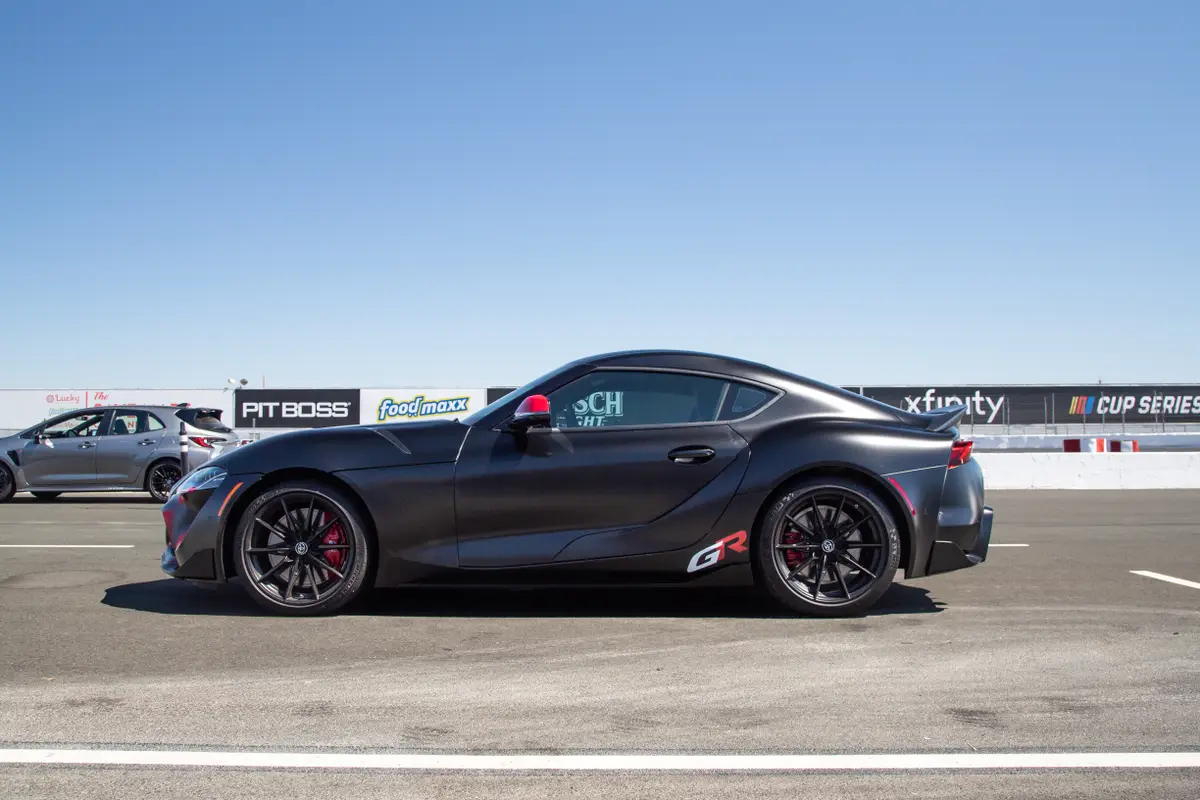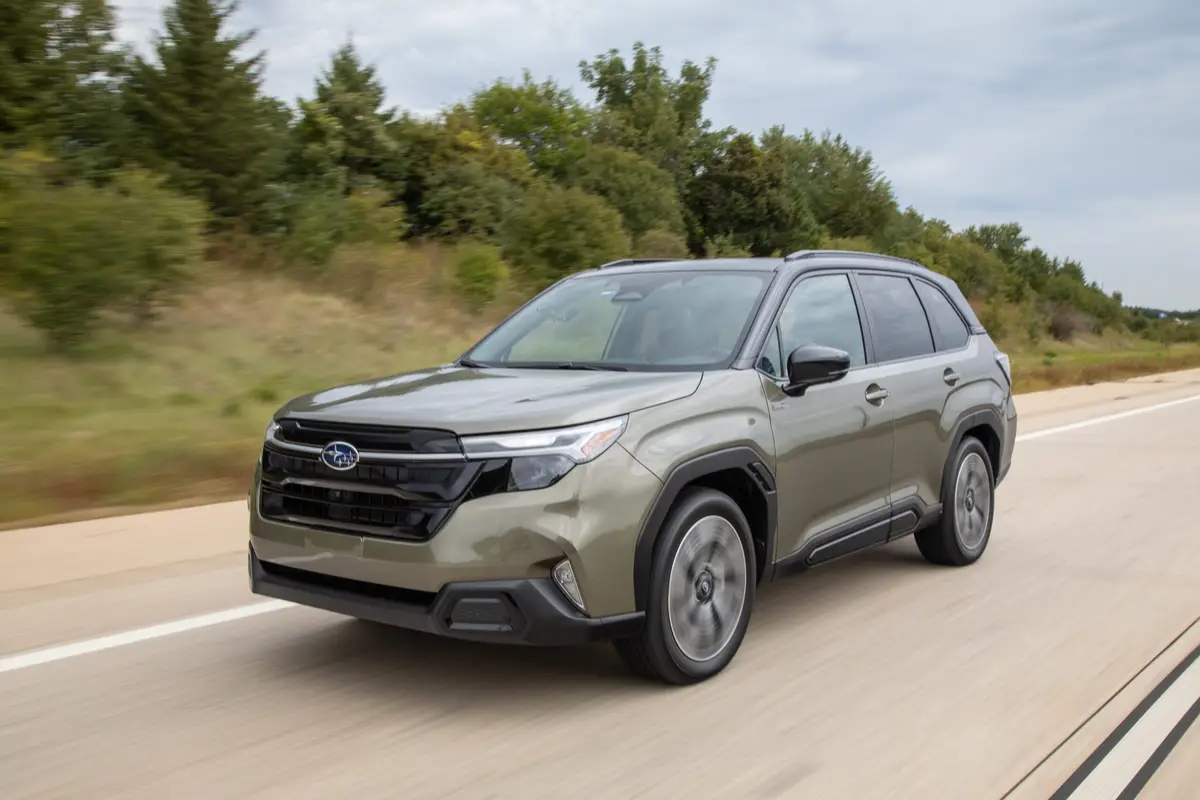2016 Buick Cascada: Car Seat Check


CARS.COM — All cars with a backseat must also have lower Latch anchors, but the federal government doesn’t mandate that convertibles have top tether anchors. Some automakers include them voluntarily, like Buick in the Cascada. In the case of Buick’s new convertible, however, the automaker shouldn’t have bothered. The top tether anchors are nearly impossible to access and use. In fact, caregivers should consider another car altogether if they plan to routinely carry car seats in it. The four-passenger convertible doesn’t offer enough legroom to comfortably accommodate a rear-facing infant seat and a front passenger.
How many car seats fit in the second row? Two
What We Like
- The two sets of lower Latch anchors are exposed and easy to access.
- After removing the head restraint, the booster fit well and the buckle stalks are on stable bases, making them easier for kids to grasp.
- The rear-facing convertible installed without issue and our 5-foot-6 inch passenger had ample legroom.
What We Don’t
- The two top tether anchors were inaccessible, and we were unable to safely and correctly install our forward-facing convertible. The anchors are nestled on the rear seatbacks and accessible only by folding the seat forward via a button in the trunk. Since there’s no clearance between the seatback and the trunklid once the seat is back in its upright position, we couldn’t sufficiently tighten our convertible’s the tether strap, making the seat unusable.
- We had to move the front passenger seat all the forward and then adjust the recline angle to an uncomfortably upright position to install our rear-facing infant seat. Our 5-foot-6 passenger could barely slide into the seat.












Grading Scale
A: Plenty of room for the car seat and the child; doesn’t impact driver or front-passenger legroom. Easy to find and connect to Latch and tether anchors. No fit issues involving head restraint or seat contouring. Easy access to the third row.
B: Plenty of room. One fit or connection issue. Some problems accessing third row when available.
C: Marginal room. Two fit or connection issues. Difficult to access third row when available.
D: Insufficient room. Two or more fit or connection issues.
F: Does not fit or is unsafe.
About Cars.com’s Car Seat Checks
Editors Jennifer Geiger, Jennifer Newman and Matt Schmitz are certified child safety seat installation technicians.
For the Car Seat Check, we use a Graco SnugRide Classic Connect 30 infant-safety seat, a Britax Marathon convertible seat and Graco TurboBooster seat. The front seats are adjusted for a 6-foot driver and a shorter passenger. The three child seats are installed in the second row. The booster seat sits behind the driver’s seat, and the infant and convertible seats are installed behind the front passenger seat.
We also install the forward-facing convertible in the second row’s middle seat with the booster and infant seat in the outboard seats to see if three car seats will fit; a child sitting in the booster seat must be able to reach the seat belt buckle. If there’s a third row, we install the booster seat and a forward-facing convertible. To learn more about how we conduct our Car Seat Checks, go here.
Parents should also remember that they can use the Latch system or a seat belt to install a car seat, and that Latch anchors have a weight limit of 65 pounds, including the weight of the child and the weight of the seat itself.

News Editor Jennifer Geiger joined the automotive industry in 2003, much to the delight of her Corvette-obsessed dad. Jennifer is an expert reviewer, certified car-seat technician and mom of three. She wears a lot of hats — many of them while driving a minivan.
Featured stories










